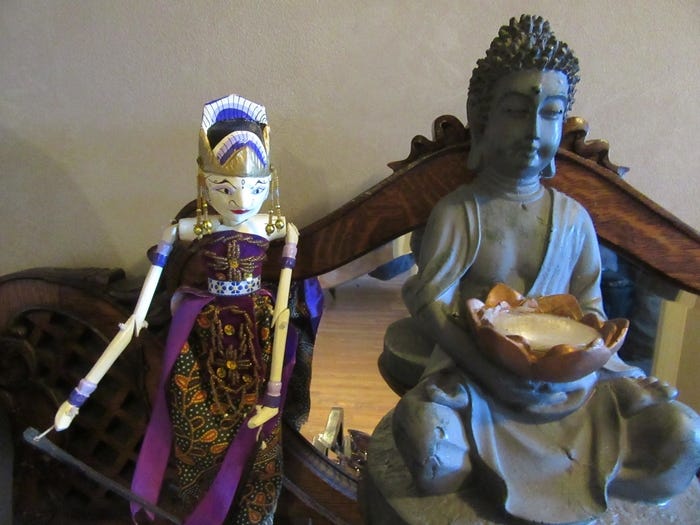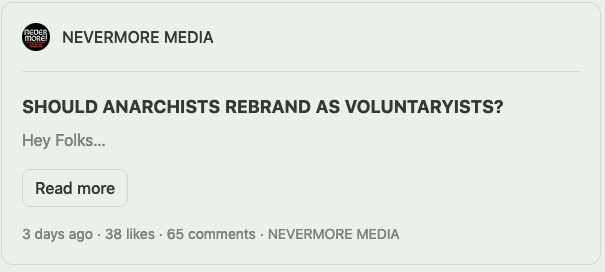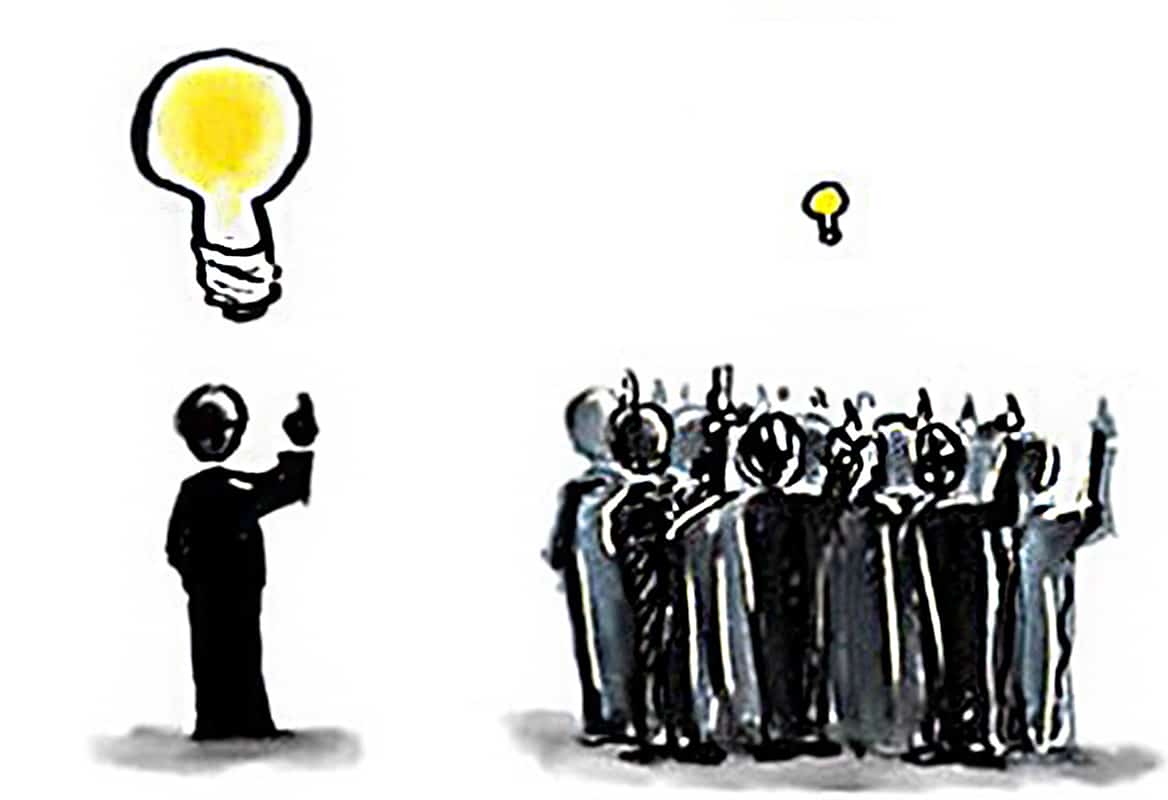

The Secret Metaphysics of Consensus Process
by Nowick Gray | Oct 20, 2024
Recently Crow of Nevermore Media (“anarchism for grownups”) asked if I would share more insights, from my long experience with Quakers and other groups, on “the underlying spiritual belief that makes consensus process work.” In that conversation I was struck by the common underlying premise of both Quaker practice and the theory of Anarchism at the heart of the Nevermore project. So while I can’t claim to speak for either Quakers or Anarchists (nor lower-case friends or anarchists), I’ll try here to articulate what that “secret metaphysics” consists of, in my understanding.
For Quakers (formally the Religious Society of Friends, founded in England in the 1600s), the core principle of both worship and business is “that of God in everyone.” This innate and universal spirit is otherwise described in Quaker tradition (note: not doctrine or dogma) as “the inner light,” or “the still, small voice” within. Since this simple yet far-reaching principle can be appreciated in terms of fundamental human dignity, natural rights, democratic empowerment, and individual conscience (thus the Quaker’s exemption as “conscientious objector” to war or military draft), there is no “religious” requirement here per se. These same principles carry secular weight too, with a spiritual essence that is implied rather than spelled out in any doctrinaire theology.
As such, the above foundation lends itself perfectly to a tradition with an ancestry more commonly understood as political than spiritual: namely, anarchism. By this term I’m not referring to shit-disturbing, city-trashing, bomb-throwing or molotov cocktail brewing anarchists of the recent Blob-funded Antifa stripe, nor the nineteenth-century cartoon assassins which the mainstream mind-filter would have us associate with the term.

Anarchism may still be construed as “negative” in the linguistic sense, as “anti-“ government or against state authority; or it could be considered in more positive, constructive terms: as a philosophy of individual sovereignty, a spiritual understanding of human equality in value, and as a practical program for decentralized organization—call it voluntarism.
With that preliminary confluence of Quakers and anarchists in mind, let’s drill down to the essence of the consensus process as it has grown out of Quaker practice, to see what it can offer to a wider world sorely in need of better tools for democratic and decentralized decision making. In this discussion I draw mostly from personal experience as a member or facilitator of Quaker meetings, committees and gatherings; and of various secular groups practicing consensus—including a land cooperative, nonviolent action groups, and even a samba band.
A good starting point would be a closer examination of what we mean by “democratic.” In the inverted reality (Bizarro World) we inhabit especially since 2020, “Our Democracy” is a concept hijacked by the tyrannical central state to mean “their control” of everything: our bodies, our minds, our speech, our money, our land, our votes. Let’s put to rest that farce and reclaim democracy’s populist essence, the right for every member of a society to have input to what happens. Think “informed consent,” at minimum.

Naturally the very scale of a nation-state, or even a vast state or province within a state—let alone supranational bodies with globalist agendas—makes the respect and realization of individual conscience, expression, understanding and participation problematic, if not impossible. Therefore democracy, like consensus, works best on the local level, with small groups of people who know and respect one another to begin with. There is a palpable, organic, and human-scale “basis of unity” as a community that comes together to make decisions for the common good, in tangible matters of local concern.
Given that foundational sense of unity in a group, specific decisions are made to serve the group. The basis of affinity can be spiritual practice (Quaker worship), an environmental issue (nonviolent action planning), school board policy (concerned parents), or any other issue reflecting common concern (Occupy Wall St., for the 99%). The key role in the process is that of the group facilitator, whose responsibility is to serve the group in considering decisions (even if that means no decision is reached).
The facilitator tries to keep the underlying goal or purpose of the group in mind, while being sensitive to the evolving “sense of the meeting.” At times during the process it is worthwhile to attempt to summarize what that is, checking with the group for further clarification and feedback as needed. Near the end, one attempts to put into concise and accurate terms the sense of the meeting, for final approval and a written record. It may still happen then that consensus is elusive, needing more time, another meeting, or more input from someone who hasn’t spoken or still has serious objections to what is proposed.
Now we come to the sticky part of consensus: full agreement. In Quaker practice, also carried into secular practice, if someone in the group is unhappy with the decision, they can buck the majority and stand firm against it. This takes courage and either strong principles or a serious specific objection to detail. If impassioned and persuasive, this conscientious objection may sway others to reconsider. Or, if the detail is minor or the principle not a grievous one, the person(s) may choose instead to “stand aside” and let the group decision carry—with their consent, if not their blessing.
In my land co-op of a dozen fellow homesteaders, one fellow of a consistently curmudgeonly disposition tended to raise a fuss about most issues but usually let them go ahead in the end. Now we had on the table a momentous road-building project to crisscross the land between upper and lower main access roads, including a bridge across a pesky ravine. Some of us wanted better all-season access, and were willing to research and fund engineering new roads. Others were concerned about environmental impact of the logging, erosion, traffic. Nearing a decision, most were persuaded to go along with the project. Sticky Dick was not, and stood firm. So, we declined to take action, some upset and frustrated by the stalemate. Two years later, we had accepted the status quo, found ways to live with and work around the poor existing roads (hello, 4WD), and as a whole, were glad not to have carved up our land so dramatically. Thanks, Sticky Dick!

Another word about facilitation. That person must be willing to “step aside” from direct expression of opinion about the matter before the group, to preserve neutrality. Or, at least, to change hats for a moment to speak as a member, not a leader of the discussion. It can also help, especially in a larger group, to have assistant facilitators for such tasks as recording minutes, keeping time, or sensing the emotional “vibes” circulating in the room. The facilitator, too, needs to keep track of the flow of participation to make sure it’s not dominated by a few. That all gets back to that fundamental principle of each person deserving a voice. In time, familiarity with the process should make others willing and able to take a turn, to assist and lead, and avoid accumulation of ego-power in one person.

In the Quaker Meeting for Worship, the basis is silent “listening” to divine presence, one’s own inner state, and if moved by that spirit to speak, giving voice to it as a form of sharing for others. Likewise in a consensus process, not everyone needs to speak with equal frequency or length. But everyone has the right to be heard if they wish. And a good facilitator can sense when someone who hasn’t spoken might need to be called on with some encouragement to do so.
While it seems this “secret sauce” of consensus has many ingredients, I think of it more as guidelines based on those fundamental principles of anarchism, democracy, or divine spirit. To serve that spirit and the need of the group in a particular context or issue, what is the best way forward? Here is a brief recap of some things that can help:
Small is beautiful. Work with those you know and who know you, on what you all care about, or what you share in common. You can usually accomplish the most by small actions on a local level. At larger levels or organization, skilled facilitation is essential.
A gifted facilitator can make all the difference in a successful process. So much depends not so much on rules of order, but on intuitive sensitivity, humor and grace.
We don’t need to get hung up on dogmatic definitions of politics or spirituality. The purpose of making decisions might include such discussions, if that is the step most needed. Otherwise, let’s stay focused on the matter at hand, with our common goal in mind.
See also:
https://nowick.substack.com/p/death-by-consensus







0 Comments